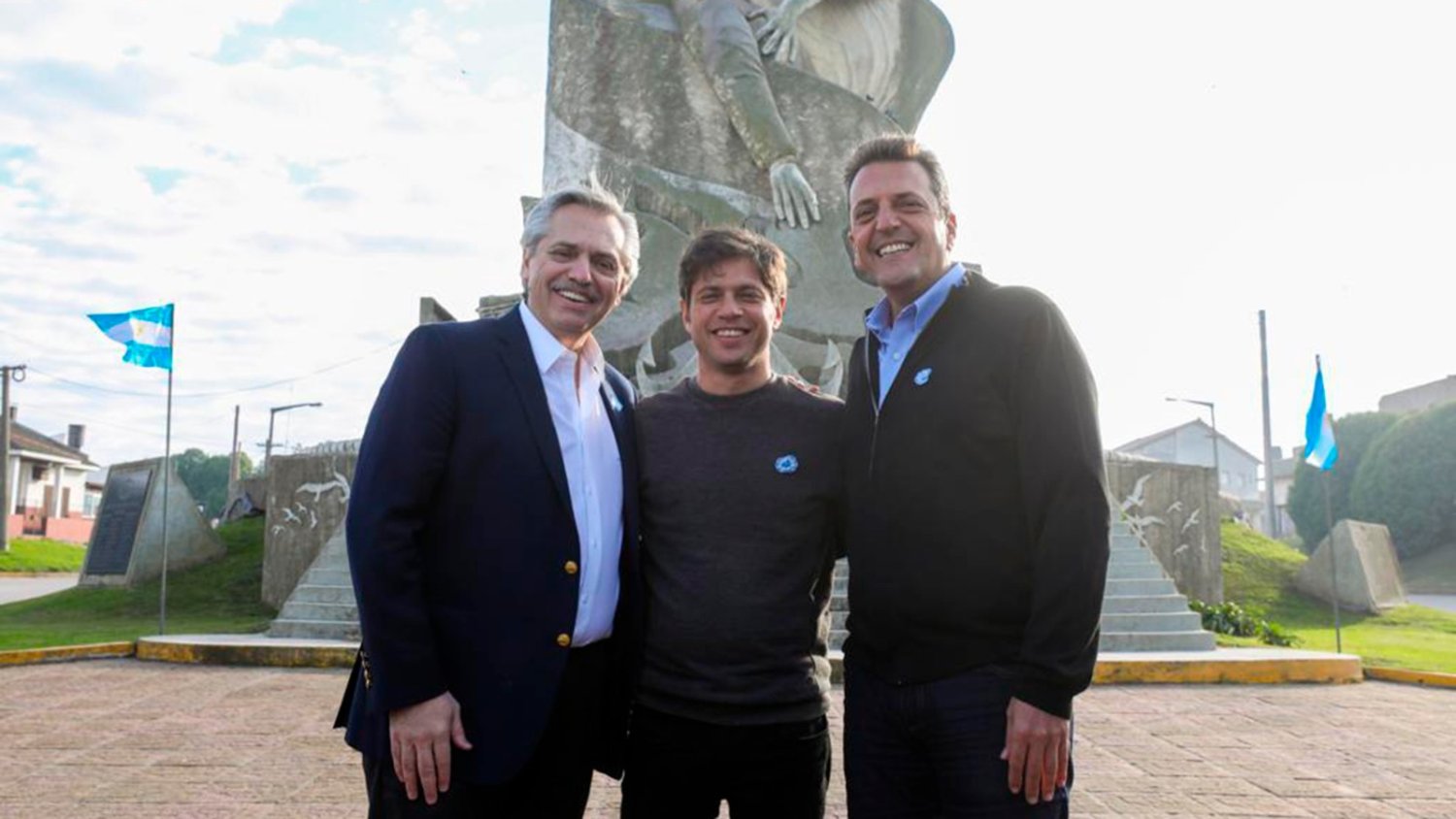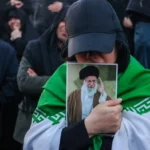
While the foam of many hours of circus and intense thread continues to fall, the presentation of lists leaves some first conclusions about the closing of a list of “unity” of Peronism.
Cristina Kirchner He went from saying that the best candidate would be a “son of the decimated generation”, to supporting Sergio Massa – “born on July 4” – as president. After announcing that she would not be a candidate for any category as a result of the conviction in the Vialidad trial, the crisis of Kirchnerism deepened as it did not have another “own” candidate who could contest the presidency and prevail to order Peronism inward. Even less in an uphill election for the ruling party, and with the vice president’s sector being part of the economic adjustment of recent years.
The differences between Alberto and Cristina worsened to the point that on Thursday, 48 hours before the closing of the candidacies, there were two announcements: Daniel Scioli seconded by Tolosa Paz was launched as a pre-candidate, and Eduardo “Wado” De Pedro published on social networks his spot saying “I want to be president”, with strong rumors that Manzur would be his vice president. A photo that depicted not only the division, but also the weakness of the Peronist candidates, which, added to internal competition, feeds each other to make the dispute at the polls even more difficult.
The result: on Friday night Cristina gave in and lowered “her chosen one”. Massa was nominated for president and Alberto appointed his chief of staff, Agustín Rossi, as vice president of a “unity” formula. Kirchnerism was left out of the presidential formula of United for the Homeland and it is one of the main novelties, since for the first time it will not have its own candidate in the formula since 2003. “The governors”, one of the sectors that embodies the backbone of the PJ (among others), intervened, they say, to achieve this unity in the face of fear generated by the possible dispersal of the inmate.
Does the new formula indicate that a new moment is opening in Peronism? Will the wish of Alberto Fernández, who became known in that off leaked to the press where he promised to “end 20 years of Kirchnerism” come true? Time will tell. For now, President ensured that his management will not be a victim of friendly fire during the campaignhaving a formula made up of two of the main ministers of his cabinet and with all the Peronism in the column behind, avoiding internal competition with another list. Residually, it will be necessary to see what will be the role of Grabois who was finally empowered to present his candidacy for president within UP. A low-flying maneuver and with the approval of Kirchnerism, which seeks to prevent leaks before the discontent that Massa’s candidacy generated in his electoral base. Anyway, Grabois will have the difficult task of explaining why he negotiated behind closed doors that in the rest of the categories he will lead the same candidates as the adjustment minister he criticizes so much in front of the microphones.
Kirchnerism seeks to build a base in PBA
Kirchnerism gave up the candidacies for president and vice president, resigning Wado de Pedro to compete as a national senator for the province of Buenos Aires. Precisely in that electoral district is where will try to get stronger, seeking re-election at the hands of Axel Kicillof and Verónica Magario. Máximo Kirchner, who was in charge of the negotiations on Saturday, will finally be the one who heads the ballot of national deputies and will go in second place Victoria Tolosa Paz, the candidate of Alberto Fernández; Minister of Social Development who has been cutting social plans in line with the IMF’s requests, adjusting to the poorest. The third place on the list will be occupied by Mario “Paco” Manrique, leader of SMATA and union secretary of the CGT. A benchmark of the union bureaucracy, Manrique is at the head of a union that has allowed the advancement of a labor reform in quotas, signing agreements by company and thus allowing the employers to advance on the rights of workers and greater flexibility. In fourth place will go Cecilia Moreau, current president of the Lower House and of Sergio Massa’s Renewal Front.
In this way, Cristina, who remained in absolute silence during the negotiations, seeks to gamble to retain the Province and from there to rearm her troops, betting on gaining her own muscle within Peronism in the event of an eventual government of Massa, or as a platform for a possible move to the opposition in the event of an UP defeat in October. However, that is music of the future and for the moment the most difficult task will be to justify why the chosen one is a man like Massa, with close ties to the United States, who brags about “overachieving” the adjustment goals requested by the IMF and who has been a political partner of Gerardo Morales all these years -not for nothing, he is one of the few referents of the current ruling party that he avoided condemning the brutal repression in Jujuy.
Unit list in CABA
Finally, Leandro Santoro, will be the candidate for head of the Buenos Aires Government, on the single list of Unión por la Patria, after Nito Artaza, Pedro Rosemblat and the former Minister of Women, Gender and Diversity, Elizabeth Gómez Alcorta, lowered their applications.
The current deputy of the Frente de Todos por la Ciudad, will be accompanied by Matías Lammens heading the list of Buenos Aires legislators, and Paula Penacca de La Cámpora as the first candidate for national deputies, followed by the former ambassador to the Vatican Eduardo Valdés, the former legislator Lorena Pokoik and the current deputy Itaí Hagman, a member of Patria Grande along with Grabois. As expected, despite the tantrums in the media, this last sector ended up agreeing to integrate the lists that in October will have Massa as a candidate for president of the coalition without major contradictions.
Legitimizing Morales’ partners
One of the confirmations that does not go unnoticed is the candidacy for national senator of Rubén Rivarolathe president of the Jujuy PJ who he negotiated with Morales the approval of his anti-democratic and totalitarian reform. It is worth remembering that while the six members of the Left Unity Front resigned from the convention, denouncing that it was a farce and that everything had already been cooked up between four walls, the reform was approved unanimously with the votes of all the conventionalists of radicalism and Peronism. Far from all the rumors that wanted to separate the rest of Peronism and, particularly, Kirchnerism, from that embarrassing attitude, today Unión por la Patria decides to reward Rivarola. That way, it will form part of the ballots of Massa and Grabois to occupy a seat in the Senate of the Nation.
face right
This year’s elections are marked by a wide range of right-wing offers: from Milei to Larreta to Bullrich, they compete to show themselves as the best and most violent adjusters. However, the strategy of Peronism continues to be look for moderate candidates and well regarded by the establishment, justifying the shift to the right of the electoral options in order to avoid “a greater evil”. First it was Scioli in 2015, then Alberto Fernández in 2019, now it is Sergio Massa 2023. Faced with this, and seeing the experience of what the Frente de Todos was, sectors of its electoral base rightly wonder: How much do you have to move to the right so that the right does not “win”?
If the recent situation in Jujuy can be considered a laboratory for what the right-wing opposition proposes as a model, it also shows that obtaining votes with demagogic campaigns like Morales and Peronism did does not guarantee a blank check for their plans; That is why they had to end up approving the undemocratic reform with their backs to the people, who have been showing significant resistance.
On the other hand, Jujuy serves as a laboratory for what the class struggle can be and the popular response in the streets against those representatives, applying adjustment plans. In the midst of significant political fragmentation as a result of a crisis that only deepens, any government that emerges from the next elections will do so weakened and without the necessary political capital to carry out the measures demanded by big business and the IMF. Symptoms of an organic crisis that anticipates hectic times and for which it is more necessary than ever to prepare.
Far from those who pretend that they can confront the right with candidates who speak the same language, what it is about is building a social and political force that is up to the times to come. That is what the PTS and the “Unite and Strengthen the Left” list, headed by Myriam Bregman and Nicolás Del Caño, are betting on, and Jujuy serves as the testimony of that fight: a strong left, which not only comes from holding the best elections for governor of history, but puts that conquest in function of strengthening the struggle and organization of the workers, the popular sectors and the communities to build their own way out of the crisis that they want to unload on their backs.
Source: www.laizquierdadiario.com

